Filter by
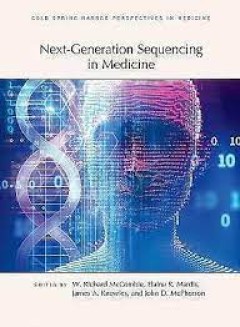
Next-generation sequencing in medicine
- Edition
- -
- ISBN/ISSN
- 9781621821137
- Collation
- vii, 192 p. : ill. ; 26 cm.
- Series Title
- -
- Call Number
- 572.8633 Nex
- Edition
- -
- ISBN/ISSN
- 9781621821137
- Collation
- vii, 192 p. : ill. ; 26 cm.
- Series Title
- -
- Call Number
- 572.8633 Nex
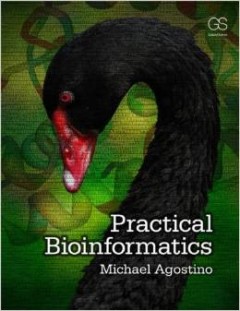
Practical bioinformatics
Practical Bioinformatics is specifically designed for biology majors, with a heavy emphasis on the steps required to perform bioinformatics analysis to answer biological questions. It is written for courses that have a practical, hands-on element and contains many exercises (for example, database searches, protein analysis, data interpretation) to complement the straightforward and practical to…
- Edition
- -
- ISBN/ISSN
- 9780815344568
- Collation
- xi, 367 p. : ill. : ind. ; 28 cm.
- Series Title
- -
- Call Number
- 572.8633 Ago p

Gene cloning and DNA analysis : an introduction
Known world-wide as the standard introductory text to this important and exciting area, the sixth edition of Gene Cloning and DNA Analysis addresses new and growing areas of research whilst retaining the philosophy of the previous editions. Assuming the reader has little prior knowledge of the subject, its importance, the principles of the techniques used and their applications are all carefull…
- Edition
- 6th
- ISBN/ISSN
- 978-1405181730
- Collation
- xvi, 320 p. : ill. : ind. ;
- Series Title
- -
- Call Number
- 572.8 Bro g
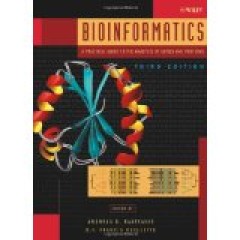
Bioinformatics : a practical guide to the analysis of genes and proteins
This fully revised version of a world-renowned bestseller provides readers with a practical guide covering the full scope of key concepts in bioinformatics, from databases to predictive and comparative algorithms. Using relevant biological examples, the book provides background on and strategies for using many of the most powerful and commonly used computational approaches for biological discov…
- Edition
- 3rd
- ISBN/ISSN
- 9780471478782
- Collation
- xviii, 540 p. : ill. : ind. ; 25 cm.
- Series Title
- -
- Call Number
- 572.8 Bax b
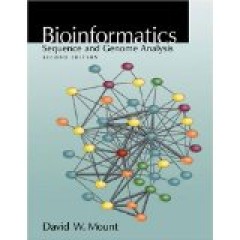
Bioinformatics : sequence and genome analysis
As more species' genomes are sequenced, computational analysis of these data has become increasingly important. The second, entirely updated edition of this widely praised textbook provides a comprehensive and critical examination of the computational methods needed for analyzing DNA, RNA, and protein data, as well as genomes. The book has been rewritten to make it more accessible to a wider au…
- Edition
- 2nd
- ISBN/ISSN
- 9780879697129
- Collation
- xii, 692 p. : ill. : ind. ; 28 cm
- Series Title
- -
- Call Number
- 572.8 Mou b

Biological sequence analysis : probabilistic models of proteins and nucleic a…
Probablistic models are becoming increasingly important in analyzing the huge amount of data being produced by large-scale DNA-sequencing efforts such as the Human Genome Project. For example, hidden Markov models are used for analyzing biological sequences, linguistic-grammar-based probabilistic models for identifying RNA secondary structure, and probabilistic evolutionary models for inferring…
- Edition
- 10th
- ISBN/ISSN
- 9780521629713
- Collation
- xi, 357 p. : ill. : ind. ; 25 cm.
- Series Title
- -
- Call Number
- 572.8633 Dur b
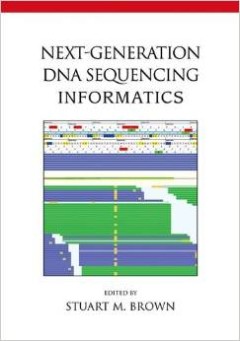
Next-generation DNA sequencing informatics
Next-generation DNA sequencing (NGS) technology has revolutionized biomedical research, making complete genome sequencing an affordable and frequently used tool for a wide variety of research applications. Bioinformatics methods to support DNA sequencing have become a critical bottleneck for many researchers and organizations wishing to make use of NGS technology. This book provides a thorough …
- Edition
- -
- ISBN/ISSN
- 9781936113873
- Collation
- xiii, 241 p. : ill. : ind. ; 26 cm.
- Series Title
- -
- Call Number
- 572.8633 Nex
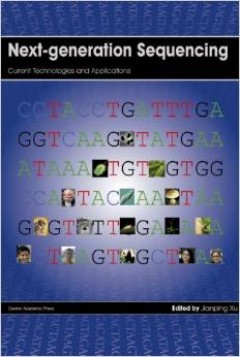
Next-generation sequencing : current technologies and applications
High-throughput, next generation sequencing (NGS) technologies are capable of producing a huge amount of sequence data in a relatively short time and have revolutionized genome research in recent years. The powerful and flexible nature of NGS has made it an indispensable tool for a broad spectrum of biological sciences, and NGS technologies have transformed scientific research in many fields. W…
- Edition
- -
- ISBN/ISSN
- 9781908230331
- Collation
- xi, 159 p. : ill. : ind. ; 26 cm.
- Series Title
- -
- Call Number
- 572.8 Nex
 Computer Science, Information & General Works
Computer Science, Information & General Works  Philosophy & Psychology
Philosophy & Psychology  Religion
Religion  Social Sciences
Social Sciences  Language
Language  Pure Science
Pure Science  Applied Sciences
Applied Sciences  Art & Recreation
Art & Recreation  Literature
Literature  History & Geography
History & Geography